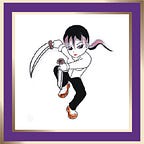Spin by Robert Charles Wilson — a review
There are times when I finish a book and feel uplifted, even joyous. At other times a book may plunge me into deep thought or introspection. Both of these reactions are fine by me and generally lead to reviews that are easy to write. The following review of Robert Charles Wilson’s Spin has not been easy to write.
For me as a reader, Spin has turned out to be a bit of a contradiction. I quite enjoyed reading the story but it left me neither joyous nor thoughtful, just somehow dissatisfied, as if I’d just eaten a gorgeous looking cake that didn’t quite taste as good as it looked.
I found Spin to be a good read but not a great one… and as a Hugo award winner I was expecting greatness. So did I miss something? Or am I just an arrogant, picky reader? You be the judge.
The novel is told in the first person by Tyler Dupree, one of three young friends who all see the stars disappear. His companions, Simon and Diane Lawton are the other two central characters of the story which traces the progress of their lives through the Spin years as they find out what the Spin is doing and make their adjustments to a life with no future.
SPOILER WARNING : from here on the review will contain references to plot and story that you may prefer to read for yourselves.
The Spin turns out to be a membrane or filter that [somehow] slows time on Earth so that each subjective second of time corresponds to years on the outside. So while Tyler and his friends grow to adulthood on Earth, hundreds of millions of years pass in the solar system. Millions eventually turn into billions as the Earth’s sun ages and begins to approach its ‘death’, a death that will take the Earth with it.
Simon Lawton, who is a certified genius, helps to terraform Mars and seed it with humans. The hope is that these Martian colonists will develop technology that may help the Earth before it is too late. In the meantime, Tyler and Diane go their separate ways, living a decades long unrequited romance. Simon lives the life of a genius obsessed with ideas. He does however maintain his friendship with Tyler and that allows Tyler to meet the little man who has come from Mars with a truckload of biotech goodies. Some of these goodies allow Simon, Diane and eventually Tyler to extend their lives. Others turn Simon into a sort of human receiver for the intelligence that created the Spin. The transformation ends up killing Simon but not before he explains that the Hypothetical — the label humans have given to the intelligence — is trying to save them from themselves. Just in the nick of time an Archway appears on Earth, providing a portal to another earth-like world and so Tyler, Diane and countless other refugees flee to the stars using the alien technology provided by the Hypothetical.
The story is well paced and well written, apart from some very odd typos that may have snuck into the book when it was translated from print to Kindle. The characters are interesting and Simon in particular is quite charismatic. The love between Tyler and Diane has a sort of unrequited, Romeo and Juliet type air about it but is plausible. The politics happening in the background is quite believable and the science is at times very interesting but… But the central premise of the Spin just fell flat for me. It, and the Hypothetical just felt like a thinly disguised veneer of science over a fantasy plot construct.
This construct is quite clever in that it allows Wilson to tell both a sweeping, epic saga as well as an intimate personal story but for me it was too big a hurdle to jump. I can live with a fusion between science fiction and fantasy but not when it’s dressed up to look like hard science fiction. Right or wrong I expect sci-fi to be at least possible which is why I can live with wormholes. I may not understand the theory or the math or the physics but at least the concept feels as if it is based on something real. The Spin never felt as if it was grounded in reality and so I could never quite suspend my disbelief. And that is why I feel so dissatisfied.
For me, Spin came close to being a great story but just didn’t quite make it. To me, novels such as ‘Left Hand of Darkness’, ‘Dune’ and ‘Cyteen’ are great novels because they make me believe, if just for a little while. ‘Spin’ did not. Good book but not great.
